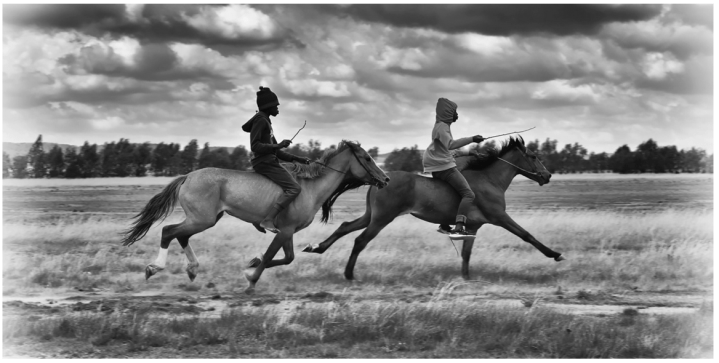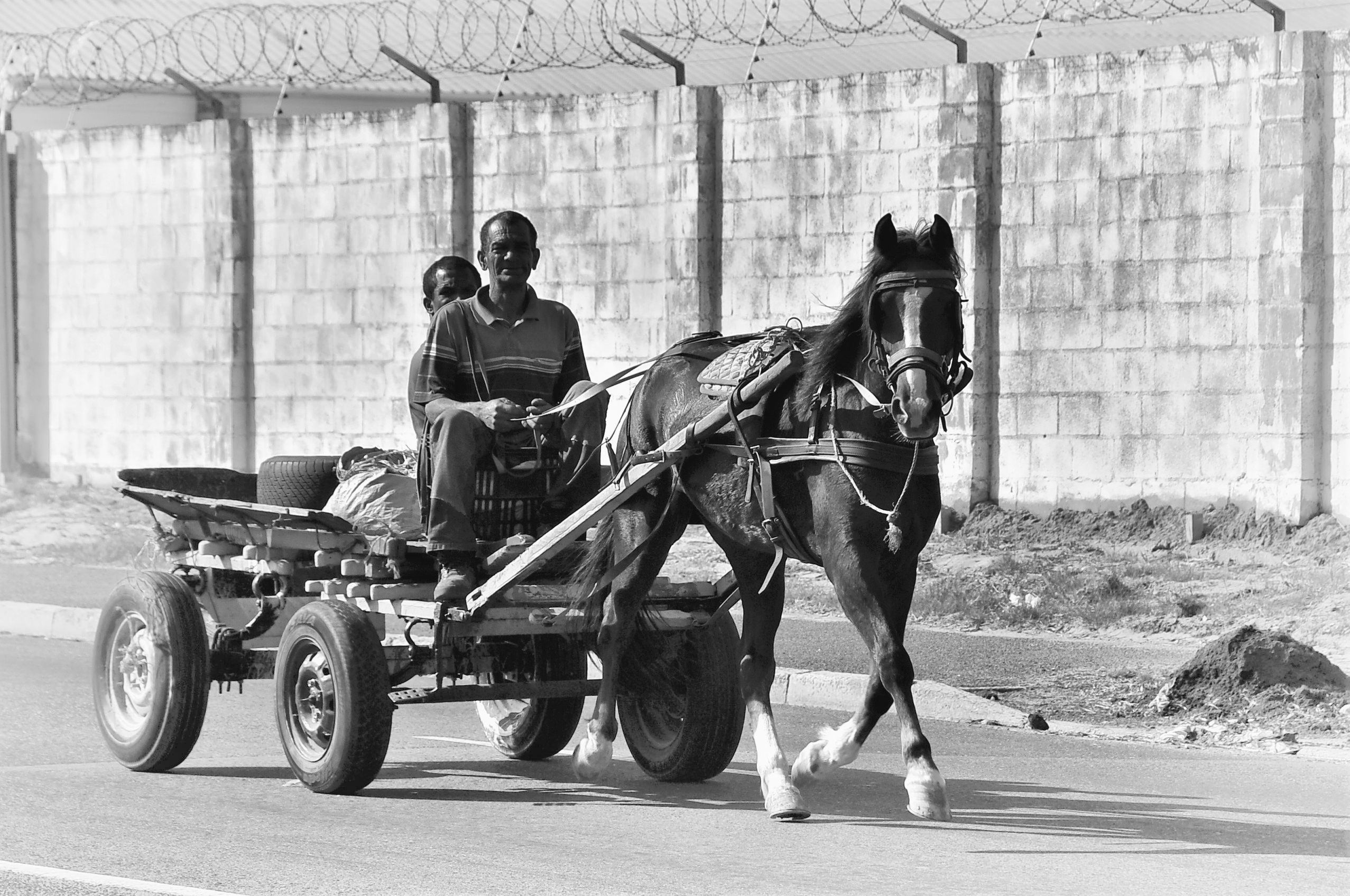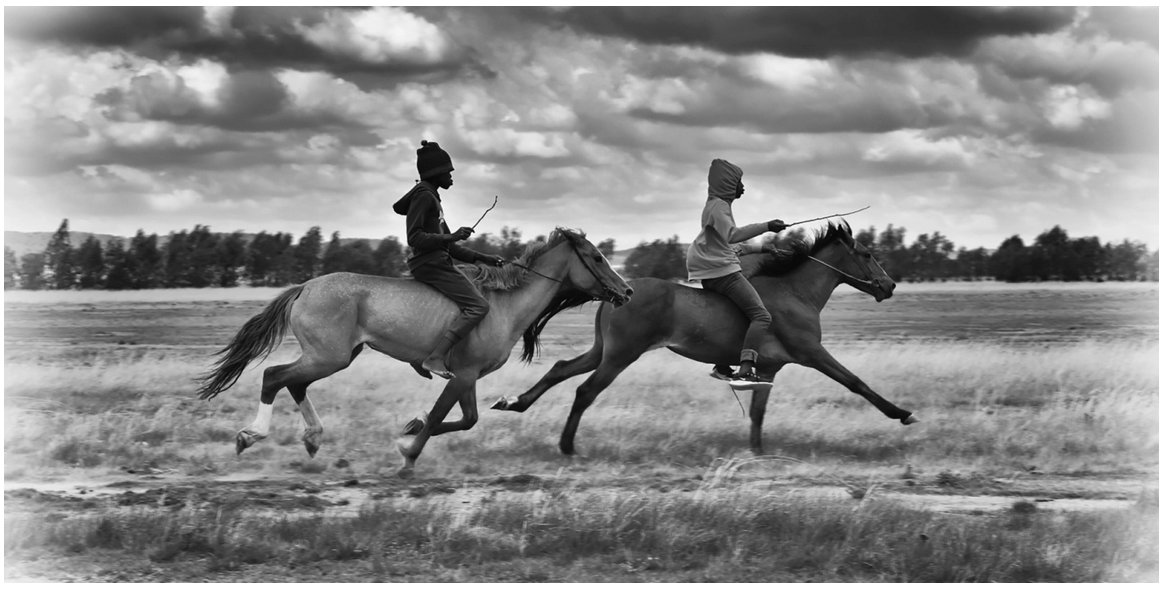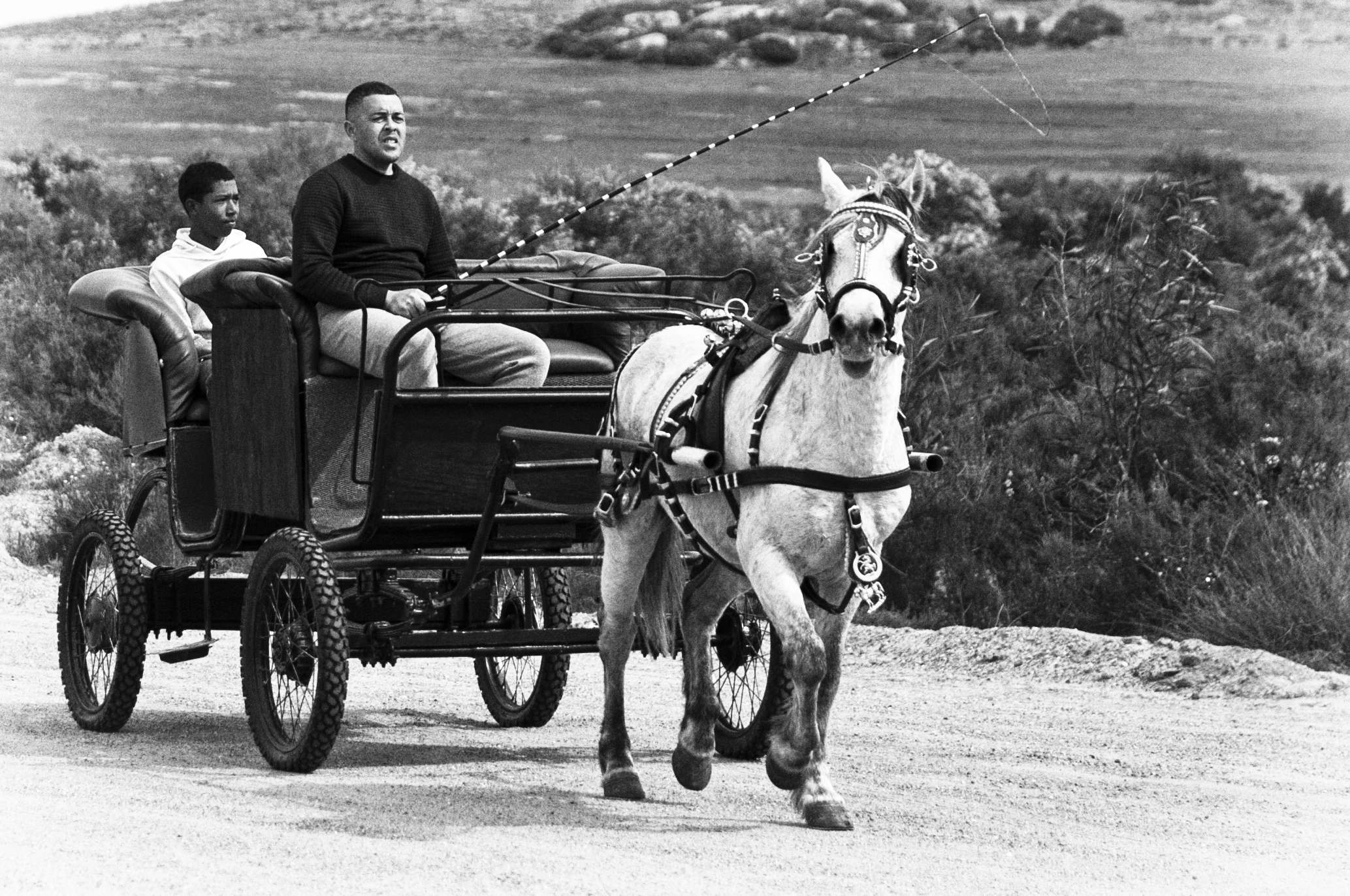PHOTO ESSAY
South African horse racing in the picture

The ancestors of the horses we see today originated on the Asian Steppe, and were probably captured and ridden about 3,000 years ago. As transport in peace and war, they utterly changed human civilisation. No longer a necessity, they’re now mainly used for sport and leisure. Our Burning Planet took a four-part deep dive into horse racing in South Africa and where unwanted horses end up. These are the pictures.
Read Part 1, Part 2, Part 3 and Part 4.

Horse transport laid the foundation of human civilisation, but today their role is peripheral and mostly confined to sport and leisure. Thoroughbreds are extraordinarily fast, reaching over 60 kilometres an hour in six strides taking just 2.5 seconds, which beats a Ferrari. In South Africa, however, Thoroughbred racing is shrinking and becoming less profitable, with declining breeders, jockeys and even race tracks. (Photo: Don Pinnock)

Race-winning Thoroughbreds are worth a fortune and given expensive five-star treatment. But when their race days are over, what happens then? (Photo: Don Pinnock)

The main audiences for horse racing are not in the stands, but on screens broadcast by betting shops throughout the world. It’s not the breeders who make the money, but touts and bookies. (Photo: Don Pinnock)

Once the main form of transport for hundreds of years, work horses are now on the margins of society. (Photo: The Cart Horse Protection Association)

When Thoroughbreds are no longer useful as race winners, they’re either euthanised or sold to stables for eventing or general riding. As speedsters are born to run, they can be difficult to calm down. But a good Thoroughbred and a loving owner make for a winning team. Rehomed and cared for, you couldn’t find a finer horse. (Photo: Don Pinnock)

Beyond formal racing is a less regulated semi- and informal racing world generally not known about by the public. It goes under various names: community, street and bush racing, and is often flagged by the National Society for the Protection of Animals as cruel and a welfare concern. Increasingly as the economy shrinks, Thoroughbreds are finding their way into these races. Retiring a racehorse requires a stud report, death report or second career report. But horses can easily disappear off the system. (Photo: Don Pinnock)

Semi formal races like this one in the Eastern Cape can draw large crowds and betting is brisk. Another example is the Bray July in the small town of that name on the South Africa/Botswana border where thousands flock there to cheer and bet on horses. (Photo: Don Pinnock)

Traditional racing is largely unregulated with all the attendant welfare problems. Without proper controls and ridden unshod on fields, stony ground, dirt roads or even tar, terrible injuries can occur. (Photo: Don Pinnock)

In some areas such as Atlantis in the Cape, horses are ridden on tar for money with their riders allegedly on tik. There are reports of them being ridden literally to death. (Photo: Don Pinnock)

Road racing in Mamre in the Western Cape takes place a few times a year. Youngsters riding bareback down a public road compete for a cup and prizes such as horse tack and food. But what we found was not what we expected. The small village has a large number of horses, many wild on community land. Those owned are well cared for and ore often used as personal transport. (Photo: Don Pinnock)

Road racing in Mamre seems more about the skill of staying on a horse at full gallop without saddle or stirrups. The young riders are extremely accomplished riders. (Photo: Don Pinnock)

In Mamre owning a horse is a status symbol. In this poor community few young people can afford cars or motorbikes. But the local bosperde are tough and can live off the commonage so are affordable. (Photo: Don Pinnock)

Horse transport in Mamre is widespread and accepted as normal, in a way unique in South Africa. (Photo: Don Pinnock)






















 Become an Insider
Become an Insider
The horse racing industry should be mandated to demonstrate and measure how its protecting the welfare of the animals that it exploits for profit and spits out the other side, without any consequence. Its not enough to boast that millions of rands are invested in developing rider talent or supporting jockeys. Money should be channeled into regulating ownership and welfare standards in the informal sector where horses are used as working horses (cart horses) or illegally in bush racing. There is no equine veterinary clinic in the Western Cape to offer treatment to horses that need the benefit of welfare treatment, and there are very few equine NGO’s that are funded adequately to address the injuries, starvation, abuse and exploitation that is common place in under resourced and unregulated communities. Where are the champions in this sector? So much money, and so little conscience.